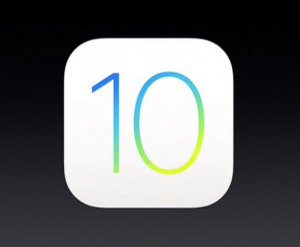 The release of iOS 10brings an array of new features and upgrades, including an important change to the functionality of the “Limit Ad Tracking” privacy setting.
The release of iOS 10brings an array of new features and upgrades, including an important change to the functionality of the “Limit Ad Tracking” privacy setting.
For ad-averse iPhone users, the Limit Ad Tracking setting has long been a nice feature to have. According to Jules Polonetsky, CEO of the Future of Privacy Forum, the newest OS offers a significant change to how this operates, and what it means for your online privacy.
Polonetsky talks about the changes to the Limit Ad Tracking privacy setting in iOS10 in his video on LinkedIn, and tells us:
“There has been, for quite some time, an option called Limit Ad Tracking. This is not new. What this has done until today is it resets the advertising identifier you have [on your phone].”
That ad identifier, he explains, is similar to a cookie, and it’s used by apps to recognize you and gather data about your behavior inside the app. By limiting ad tracking, the app developers agreed not use the identifier to target you with relevant advertising. The app could, however, still track behavior linked to that identifier to understand, for example, if the ads they were pushing were working.
“So, up until iOS10, Limit Ad Tracking meant ‘please don’t do any behavioral advertising but yes, you can continue measuring whether your ads elsewhere are working effectively,’” he explains. The information collected was used by the app itself and by whatever third-party companies were allowed access to it as well. So somewhere out there exists a massive amount of data tied directly to your phone’s app usage.
That’s changed in the new iOS10.
“Whatever the goal or whatever the motivation, Apple has decided that when people say ‘Limit Ad Tracking,’ no longer will that advertising identifier be sent to the app and to those third parties,” he adds.
The upshot of this extends beyond the user experience. While certainly many will be happy to avoid those creepily-familiar highly targeted ads, it also may protect their personal information out in the global data cloud.
Privacy experts believe, and the FTC is coming to terms with this fact too, that the ad identifier on your phone can be linked to personal information. In other words, a third party could theoretically access the link between that ad identifier and the owner of the phone, bridging the gap to other personal information.
With iOS10, we can reset it and theoretically break that link between the identifier on our phone and our personal info.
In other words, you’ll still get ads pushed to you (unless you are among the growing numbers who use ad blockers), but the tracking capability will be shut off at the source. Sounds like a win for privacy fans, and a big potential loss for companies that rely on this user data.
